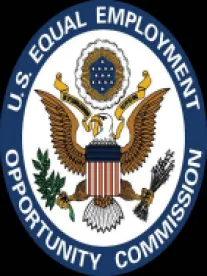The U.S. Supreme Court may resolve a split among the federal appeals courts on whether the Equal Employment Opportunity Commission’s efforts at conciliation before bringing suit against an employer are open to judicial review. Most circuit courts to have considered the issue decided that courts may engage in a searching review of the EEOC’s conciliatory efforts. But the U.S. Court of Appeals for the Seventh Circuit, in Chicago, in EEOC v. Mach Mining, LLC, 738 F.3d 171 (7th Cir. 2013), took the opposite view. (For more on the Seventh Circuit decision, see our article, Seventh Circuit Agrees with EEOC There Is No Affirmative Defense for the EEOC’s Failure to Conciliate.) The Seventh Circuit has jurisdiction over Illinois, Indiana, and Wisconsin.
Conciliation is important in Equal Employment Opportunity Commission matters, occurring in cases in which the EEOC finds reasonable cause to believe an employer has violated a statute it enforces. The EEOC may file a lawsuit only if the Commission has been unable to secure a conciliation agreement acceptable to the Commission.
In many federal courts, employers sued for discrimination by the EEOC after attempts at conciliation have failed cite flaws in the agency’s conciliation process as a defense to the lawsuit. Employer in the U.S. Court of Appeals in the Second, Fourth, Fifth, Sixth, Tenth and Eleventh Circuits have the opportunity to seek dismissal of the lawsuit based on the failure of the EEOC’s conciliation process.
The defendant-employer, Mach Mining, requested the Supreme Court review the Seventh Circuit’s decision on February 25, 2014 (No. 13-1019). Mach Mining asks the Court to settle the question of whether courts may enforce the EEOC’s mandatory duty to conciliate before filing suit. It grounds its request on (1) the circuit split created by the Seventh Circuit’s ruling, (2) its contention that the question presented is important and recurring, and (3) its contention that the Seventh Circuit’s ruling is wrong. The EEOC has until April 28, 2014, to respond to the petition.
Mach Mining argues the Seventh Circuit’s position runs contrary to longstanding precedent in six other circuit courts. It notes that these circuits have long found that the EEOC’s efforts to conciliate are subject to “good faith” review or a more probing review of whether the EEOC (a) provided sufficient information to the employer, (b) gave it a meaningful opportunity to respond, and (c) exhibited a reasonable attitude in light of the employer’s response.
Mach Mining further argues the Seventh Circuit’s position is completely untenable and its reasoning is faulty. First, it asserts that the text of Title VII of the Civil Rights Act of 1964 infers an affirmative defense, just as it does with respect to other conditions precedent, such as the requirements that charges and lawsuits from individuals be filed within certain time limits. Second, Mach Mining contends that the Seventh Circuit’s reliance on the confidentiality requirements of conciliation is misplaced because they do not demonstrate that Congress intended the courts to take the EEOC at its word with respect to its conciliation efforts. Third, Mach Mining notes the Seventh Circuit’s concern that there is no meaningful standard of review to apply as to the adequacy of the EEOC’s efforts is rendered moot by the case law of six other circuits and the EEOC’s ability to promulgate regulations. Finally, Mach Mining asserts the Seventh Circuit does not provide any support for the court’s professed concern that employers may act in bad faith if judicial review exists; in fact, it argues, absent judicial review, the EEOC may follow its stated intention to file large, publicity-seeking lawsuits aimed at gaining class relief rather than achieving lower profile conciliated resolutions of such cases.
If the U.S. Supreme Court accepts the case for review and rejects the Seventh Circuit decision, employers subject to EEOC investigations would better able to reach settlements with the Commission before litigation. If Supreme Court affirms the Seventh Circuit decision or decline to review it, the EEOC may be emboldened to extend its arguments to the other statutes it enforces which incorporate Title VII’s conciliation requirement, including the Americans with Disabilities Act and Genetic Information Nondiscrimination Act.





 />i
/>i
